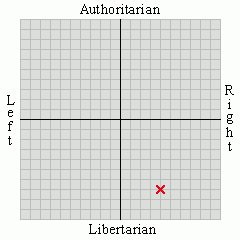The EU will fail, guaranteed. [EDIT - bad wording. I wasn't thinking about whether it'll fail in its bid to be recognised by the UN but, as the next couple of paragraphs will make clear, that I think it'll eventually fail as a state, nation, quasi-federation, call it what you will.] Its parliament is factional and pretty toothless compared to its executive, which itself is unelected, lacks any kind of popular mandate, consists of serial election losers and placemen, and infamously has been unable to provide a satisfactory set of accounts for fifteen years. Those who label it the EUSSR aren't far from the truth, and remember that the namesake collapsed after 70 years. If what happened to the Soviets is a guide then deciding how long the EU may have is almost picking which treaty you'd like to start from. The Treaty of Rome was 1958, so let's hope the whole thing will have gone tits up by 2030. That we might need to start counting from the Treaty of Lisbon doesn't bear thinking about, and in fact I think it would be pessimistic to do so. The EU's emergence as a federal state in its own right has been a series of bloodless coups and many years of salami slicing rather than bloody revolutions, annexations and internal conflict, and I suppose that ought to work in its favour as far as stability and longevity of the federal state itself is concerned. But then we've got to look at what works against it.
Firstly there are large differences in language and culture: the Soviets had those too, but for one thing there were fewer states and for another the largest, Russia itself, made up half the population. While about half the EU speak English most of those speak it as a second language (that may include people who've spent their school years entirely in the British education system). The most widely spoken language as a native tongue is German, and that's less than a fifth of the EU. More than twenty other languages are spoken, and many of the member nations which speak them are ancient and have traditions and customs that they don't want to lose. There's enough friction in the United Kingdom with Ulster, Wales and Scotland feeling like they're being run by the English, who in turn increasingly feel as if the situation is more or less the other way around. Now increase that four way partnership by a factor of about four or five and the complexity of all the different relationships by the square of that. That, my friends, is the EU.
Then there's the economic and financial situation, which ain't pretty. It's well known that there are a number of unexploded money bombs ticking away and little being done about it, not even the usual EU position of having endless committee meetings to decide whether to call the disposal people Volatile Chemical Compound Safety Coordinators or Dangerous Ordinance Disposal Operators (who will likely go the way of the dodo before the idiots decide anyway) before finally referring it to Health and Safety for their refusal. In the meantime there are some eye watering national debts, pension timebombs, the knock on effects of the recession, credit crises and the risk of some defaulters, that inability of the executive to account fully for its spending, a cobbled together currency that prevents some nations from taking the kind of remedial action they need to tackle their internal economic problems and which some believe risks the currency itself, and as much difference in terms of members nations' technological, political and economic situations as there is in cultural terms - GDP per capita varies from US$11,500 at one end to US$79,600 at the other, which is a much, much larger variation than internally in the US. On top of that taxpayers in the wealthier nations are continuing to be sent the bills for the poorer and/or more profligate nations (itself a relative term considering the profligacy of the last decade in the UK) and they're getting very pissed off with it. Surely something's got to give sooner or later. What happened in the Soviet Union? Members states began to move towards independence, the largest one started exercising greater autonomy regardless of not having been granted it, there was a failed coup, and when the dust settled someone got out a calculator and realised that the whole USSR was effectively bankrupt. You might get away with being a deranged communist leader with an enormous private cinema in a single country where you've managed to establish a personality cult, but it's a lot harder to do in a federation, especially if some members keep getting the shit end of the stick. That's the EU as well, and to get to the top there seems to be a requirement not to even have a personality.
So it will fail. I firmly believe it. It would have a fair chance if it reformed itself into something worth having, something the citizens of its member nations might actually want. Federation is inherently bad and from where it is right now it's not impossible to become a good one, a federation of competing states all vying for the best and brightest citizens and the most creative and productive businesses by offering the best environments in which to live, work and trade. The executive in the form of the unelected European Commission would have to go before anything else, and in it's place something or someone democratically accountable who would immediately transfer some powers to the parliament and most of the rest back to the members, retaining little more than Queen Lizzie does at the moment. All countries/states would run themselves as they have always done and could change or not as they saw fit. Have a monarch, be a republic, whatever suits. Some would be more statist than others and attract those who want the state welfare, state healthcare, state education and state nanny, and would obviously have to pay tax rates accordingly. Other places would be more laissez faire and offer minimal state interference but also minimal taxes. There would be commonality of major laws (murder, kidnap, rape, robbery and so on is illegal in all member nations of the EU anyway, just like everywhere else) but otherwise different legal systems, which ought to allow both libertarians and social conservatives somewhere that suits their values. Jeez, you know what? I'd move back there for that. I'd vote for it. I'd be, dare I say it, pro-European.
Of course while it's theoretically possible for the EU to transform itself into that the chances of it actually happening are about as good as me being seranaded by Elvis at the party to celebrate my second consecutive winning lottery ticket, so realistically there's little danger of me buying a plane ticket and becoming a good European. So the question for everyone who also dislikes the Sovietised EU as it has become and who thinks it will inevitably fail is this: wait for it to do it on it's own or take every legal action to encourage it to fail as soon as possible. Perhaps, despite my contempt for the UN, petitioning them not to recognise the EU might be worthwhile, especially if they're reminded of Article 1 of their own charter (my bold):
The Purposes of the United Nations are:Half a billion people are having a supra-national state forced upon them. Only a handful have been consulted on only a handful of occasions, and almost always they have opposed the European project. Others were promised consultation only to have that promise broken not just by one national leader but by his eventual replacement(s). No principle of self-determination has been given more than lip service, if that. And given that there have always been groups with a grievance who are happy to fight over a perceived lack of self-determination I feel the prospects of long term peace inside the EU are not good.
...
2. To develop friendly relations among nations based on respect for the principle of equal rights and self-determination of peoples, and to take other appropriate measures to strengthen universal peace;


















